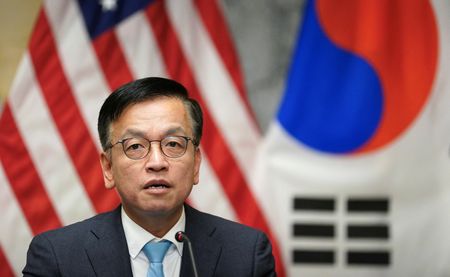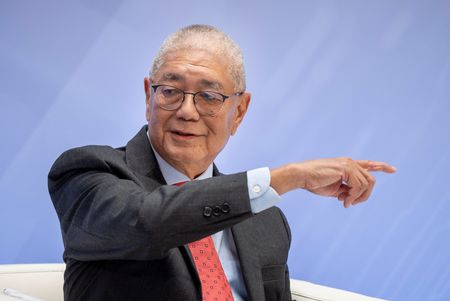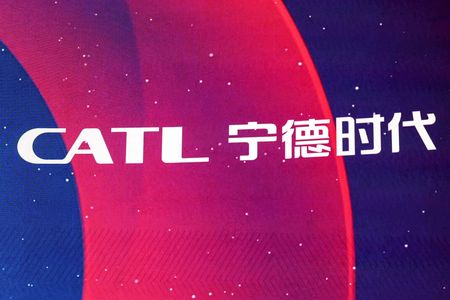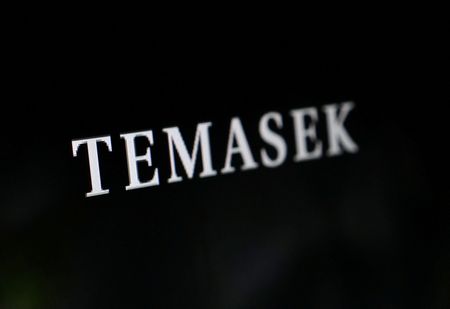By Jihoon Lee
SEOUL (Reuters) – South Korea’s free trade agreement with the United States could help mitigate its exposure to reciprocal tariffs threatened by U.S. President Donald Trump, economists at two major investment banks have said.
Trump imposed tariffs on Monday on all imports of steel and aluminium, beginning from March 12 and South Korean officials have also warned against possible risks from tariffs on Chinese goods and curbs on imports of cars and semiconductors.
But as Trump also threatened reciprocal tariffs on every country that sets duties on U.S. imports, economists with Barclays and Citi said South Korea’s free trade pact may limit their impact.
Among the top 15 U.S. trading partners, South Korea’s tariffs are the second highest rate after India, but nearly all were eliminated by the pact first signed in 2007 and revised in 2018 during Trump’s first term.
“Taking these near-zero Korea-U.S. tariff rates into account, the impact on Korea is even more negligible than we had earlier estimated,” Barclays economists said in a note.
Tariff rates stood at 0.002% and 0.003% on U.S. exports to South Korea and vice versa, they added.
Despite tariff worries dominating global financial markets, South Korea’s benchmark KOSPI has risen 1% this week to trade around its highest level since early November.
It has outperformed a fall of 0.5% in the emerging Asian market, boosted by optimism that the domestic impact of tariffs would be less severe than initially feared.
“The United States could potentially impose reciprocal tariffs on South Korea’s specific goods, related to vegetable, fruits and animal and food products,” Citi’s economists said.
“In this case, the direct negative impact to South Korea’s exports could be limited, as the share of food-related Korean exports to the United States is only 0.3% of Korea’s total exports or 1.5% of Korea’s exports to the U.S. in 2024.”
South Korea is among 20 countries that have comprehensive free trade pacts with the United States. In the Asia-Pacific region, these include Australia and Singapore, while that with Japan focuses on critical minerals.
On Wednesday, Acting President Choi Sang-mok said South Korea would respond pre-emptively to any domestic impact from U.S. tariffs by preparing support measures for firms that might be hit, and by seeking to diversify export markets.
(Reporting by Jihoon Lee; Editing by Josh Smith and Clarence Fernandez)










